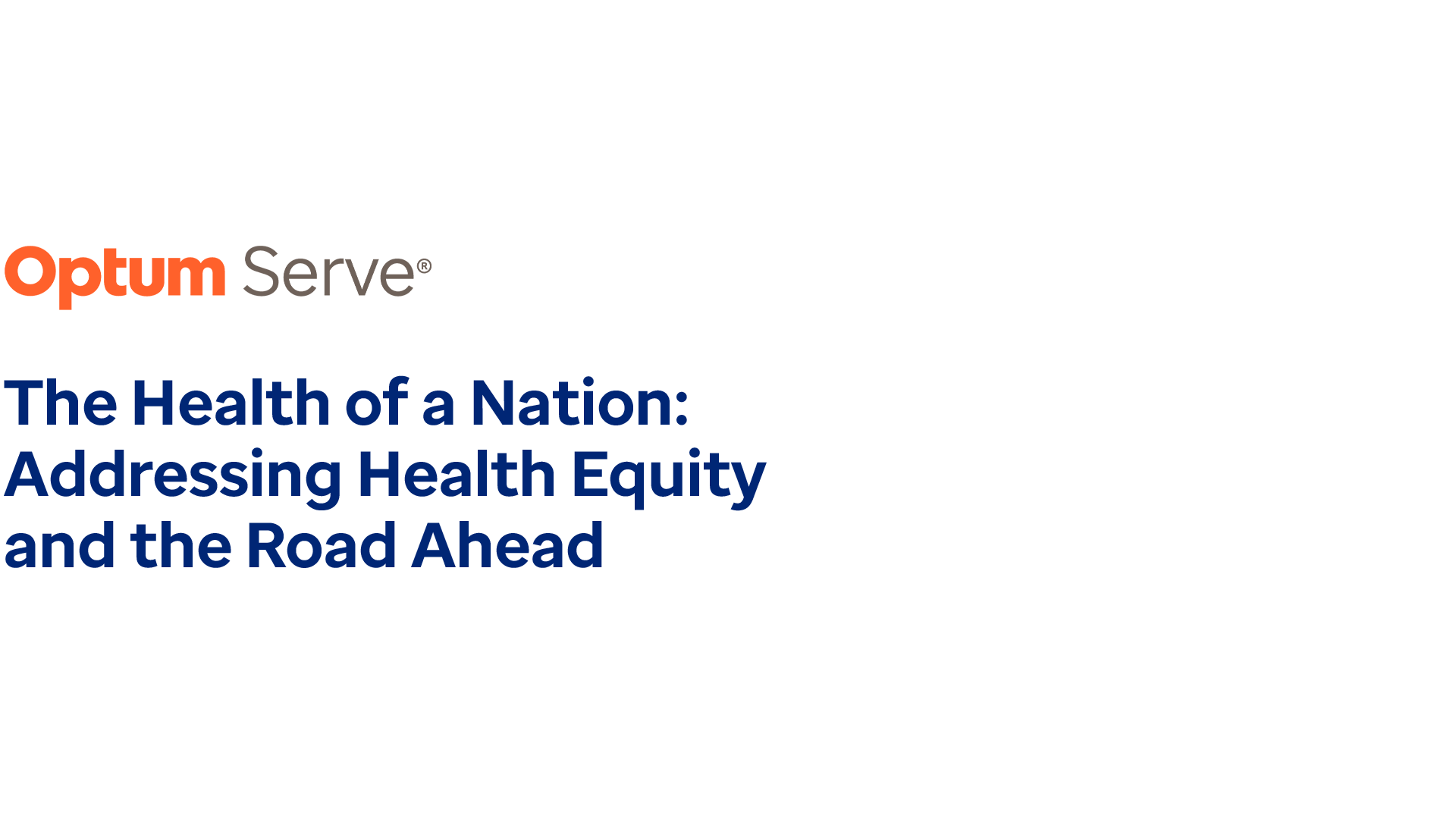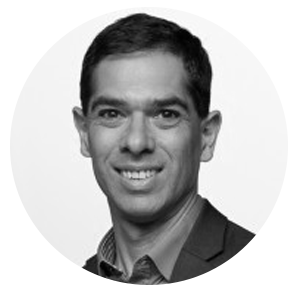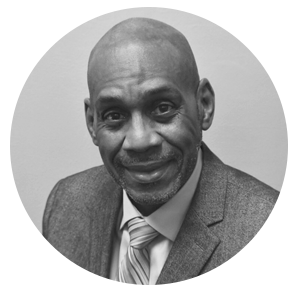
Watch On Demand!
Providing an equitable healthcare system requires acknowledging the barriers inhibiting that equity and building trust between caregivers and their communities. In a country where the health needs are as diverse as the population, leaders need to prioritize individualized care and create a system that treats the whole patient. Join Optum Serve and GovExec as we bring together the experts to explore the path to a more equitable healthcare system, the factors that contribute to gaps in care and explore the solutions that will enable us to close those gaps moving forward.


Dr. Ethan Berke
Chief Public Health Officer & Senior Vice President
Optum Serve
Ethan Berke, MD, MPH is Chief Public Health Officer & Senior Vice President at Optum Serve. In this role, he supports long-term strategy, innovation, and growth to improve the lives and health of those served through care delivery, policy, data and technology, and public health principles. He oversees the public health and prevention efforts for the organization, including infectious disease, emergency preparedness, chronic illness prevention, equity, and health disparities. Dr. Berke also serves as a Medical Officer on the Minnesota-1 Disaster Medical Assistance Team, part of the U.S. Health and Human Services National Disaster Medical System.
He and his colleagues pioneered self-collected COVID nasal testing, demonstrated the utility of pooled COVID testing in schools and businesses, was an advisor to the National Institutes of Health Rapid Acceleration of Diagnostics (RADx) initiative, and regularly contributes to public health policy through work with federal and local agencies. He previously served as the Enterprise Chief Medical Officer in UHG’s Global Research and Development group, and Chief Medical Officer of Population Health Solutions and Vice President of Clinical Innovation at Optum, working to create payer, provider and health-system focused solutions that improve the care of patients in the context of their community. His work enabled payers and health systems to provide the highest quality care, at the lowest cost, with an exemplary patient and provider experience, no matter what payment system is utilized.
Prior to joining UnitedHealth Group, Ethan served as Medical Director of Clinical Design and Innovation for Dartmouth-Hitchcock Health System (D-HHS), an academic health system in New Hampshire. Dr. Berkeengaged in many operational initiatives, including creating and leading the primary care service line at D-HHS. In his primary care leadership role, he focused on innovation in the provider practice, specifically developing and implementing value-based compensation models for primary care physicians, an imbedded behavioral health clinician model and multi-disciplinary team-based improvement projects to improve the patient experience.
Throughout his career, he has worked to innovate health care delivery and public health. He developed novel roles in the health care workforce using apprenticeship models and leveraged technology to improve the quality of care and transform health systems from reactionary high-cost care models to a proactive, high-value models focused on health. At Dartmouth, he was the Principal Investigator for the Centers for Disease Control and Prevention Research Center and a faculty member at The Dartmouth Institute for Health Policy and Clinical Practice. Ethan has consistently, creatively crafted and leveraged powerful cross-disciplinary and cross-industry partnerships. He regularly contributes to the national health policy discussion pertaining to social determinants of health, health transformation, and consumerism in health and has contributed to health legislation.
He completed a BS degree in statistics at the University of Vermont, an MD degree at Albany Medical College, residency in Family Medicine at the University of Washington, a Masters in Public Health in Epidemiology at the University of Washington, and was a National Health Service Corps Scholar serving in a Federally Qualified Health Center in Massachusetts. He is internationally known for his work in spatial epidemiology, mobile health, and remote medical sensing, and has researched the built environment to better understand how habitat and behavior affect individual and public health.
He completed a BS degree in statistics at the University of Vermont, an MD degree at Albany Medical College, residency in Family Medicine at the University of Washington, a Masters in Public Health in Epidemiology at the University of Washington, and was a National Health Service Corps Scholar serving in a Federally Qualified Health Center in Massachusetts. He is internationally known for his work in spatial epidemiology, mobile health, and remote medical sensing, and has researched the built environment to better understand how habitat and behavior affect individual and public health.


Michael Askew
Deputy Director
The Office of Recovery
Michael Askew is the Deputy Director of The Office of Recovery. In his role at Substance
Abuse & Mental Health Services Administration (SAMHSA and the Department of Mental
Health and Substance Abuse is to manage, provide leadership, and ensure SAMHSA's efforts to
advance the health of our nation. The Office of Recovery was established to evaluate and initiate
policy, programs and services with a recovery focus and ensure the voices of individuals in
recovery are represented.
Previously, Michael served as the Director of Center for African American Recovery
Development (CAARD), providing national leadership in advancing the development of African
American Recovery Community Organizations in BIPOC Communities.
In his previous role, he was Director of Advocacy for Connecticut Community for Addiction
Recovery (CCAR) where he directed advocacy efforts with CCAR at the state legislature in
supporting Recovery Community Centers, Recovery Support Services, Clean Slate Initiative,
Prison Reform and other advocacy efforts.
Michael was the manager of the Bridgeport Recovery Community Center (BRCC) since its
inception in 2006 - 2017. A self-identified person in recovery since May 28 1989, Michael has
helped many people get into recovery, maintain and sustain their recovery. Michel has gained
recognition as an experienced recovery advocate with 30 years in raising public awareness,
prison reentry programs, supporting system and individual recovery processes, and building
recovery capital on a local, state and federal level.
Michael served on the State of Connecticut Dept of Mental Health and Addiction Services
(DHMAS) State Advisory Board as a regional substance use Board Member, supporting the
early structuring of their Recovery Oriented System of Care.
Among the many awards Michael has received; In 2000 he received the Black History Month
“Unsung Heroes” from The Center for Substance Abuse Prevention, SAMHSA; the 2012 Mary
Freeman Award from the African American Historical Society of Fairfield County, and the 2014
Urdang-Torres Community Impact Award from the Bridgeport ReEntry Collaborative. In 2017,
Faces and Voices “America Honors Recovery” honored Michael with the Vernon Johnson
Award “Advocate of the Year.” He was inducted into the 2020 CT Hall of Change as one of the
“Great 8” recipients being recognized and memorialize as a former incarcerated person that
made substantial contributions to Connecticut over the years.


Anne Armstrong
VP of Strategic Alliances
GovExec
.
Resources
Editorial Resources
Transcript
Webcast Transcript
Underwriter Resources
Transforming health care together
Advancing the American health system is one of the biggest tasks federal agencies grapple with. Between the terabytes of data and the daily challenges, it’s not an easy job. That’s why so many agencies turn to Optum Serve.

